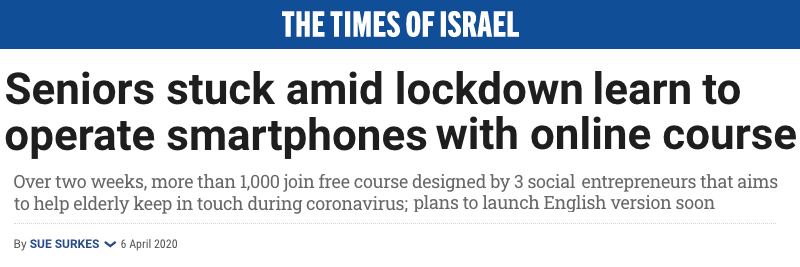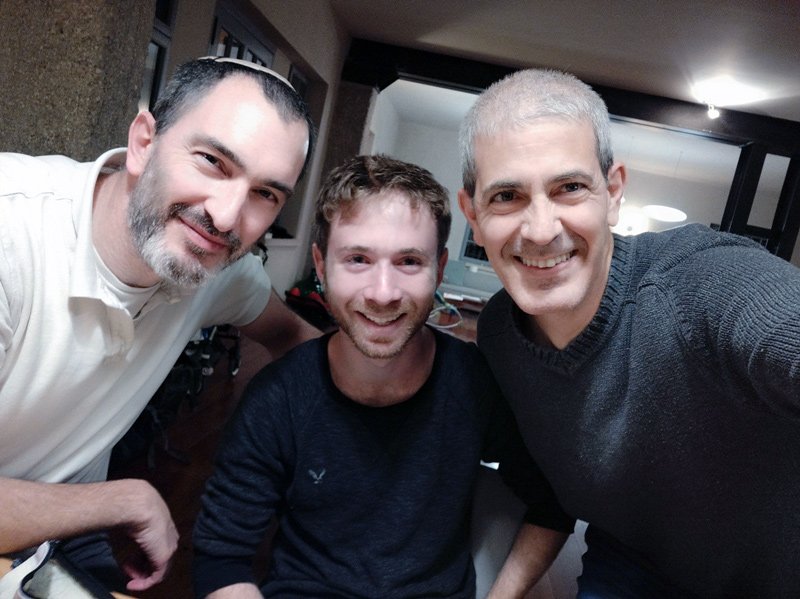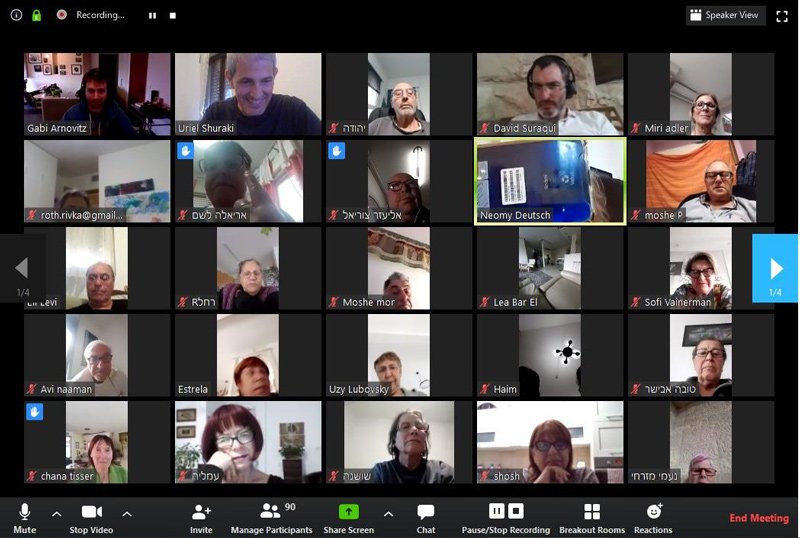

A speedily-launched initiative to teach seniors how to operate smartphones during the coronavirus crisis has attracted more than 1,000 people in just two weeks.
The project, launched by three Jerusalem social entrepreneurs, has kicked off by explaining how to use WhatsApp video and the video-conferencing application Zoom, both of which are being used across the world to keep families separated by COVID-19 in touch.
Until the coronavirus struck, two of them — Gabi Arnovitz, 25, an economics and business management student at Hebrew University and Uriel Shuraki, a cofounder of the tech project MadeinJLM, were physically teaching classes for the elderly in smartphone use at several locations in the capital.
A couple of weeks ago, with an increasing lockdown all over the country, the duo joined with Uriel’s cousin David Suraqui to create an online course and to offer it without charge.
Shuraki deals with the technical side of the project, while Suraqui oversees business development. Arnovitz narrates the videos.
Five days a week, with each one working at home, the three produce three to seven-minute video clips — currently just in Hebrew — sending out the links to a dedicated YouTube channel via WhatsApp, one version for iPhone and one for Android.
Each video shows the phone screen and a moving cursor, with Arnovitz explaining exactly what he is doing.
So far, videos have introduced subjects such as how to use WhatsApp’s video chat, how to do so in groups, how to install Zoom and open a personal account, how to join and how to initiate a Zoom call and how to label important WhatsApp messages.
“We have a whole curriculum, from WhatsApp and Facebook to Google Drive,”Arnovitz told The Times of Israel.
“We already have four WhatsApp groups and we keep opening more.”

In order to test the students, Arnovitz and his colleagues sent out two Zoom invitations after teaching students how to use the application.
Out of the first 600 students, 75 joined. “We talked and it was incredible!” said Arnovitz. “The second meeting brought in 90 people out of 700.
“This is creating a community,” he added. “People are saying they’d like to meet when they finish.”
Many of the course participants are from Jerusalem, but as news of the course has spread, students have joined from Dimona in southern Israel, Ramat Gan in the center, and Haifa in the north.
The course is easy to join online via the course website. “All you need to do after that is to click on the link that you get and press play on the YouTube video,” Arnovitz explained.
Once the coronavirus crisis is over, the threesome plan to turn the course into a business.
‘We’re trying to help combat loneliness’
“We’ve been thinking of doing a start-up for a while. At some point we’ll figure out how to make this a business, but for now it’s free, because we’re trying to help combat loneliness. People are in bad shape and we’re trying to help.”
Asked if this was the first online course of its kind in Israel, Arnovitz said, “You’re never the first. But in Israel, not a lot of people are doing online stuff for seniors.”
While the videos made so far are all in Hebrew, Arnovitz — who immigrated from the US at age 5 and is bilingual — is eager to start producing in English, too.
Currently, the three are discussing ideas to make virtual participation in family Passover seder easier.
The seed for helping the elderly with smartphones was planted when several years ago, Arnovitz taught his grandparents who immigrated to Israel at the age of 85.
“I promised, as a boy, that I would help with anything if they moved here,” he recalled. “The first thing I did when they made aliyah was to help them with the smartphone so that they could easily translate from Hebrew to English.”